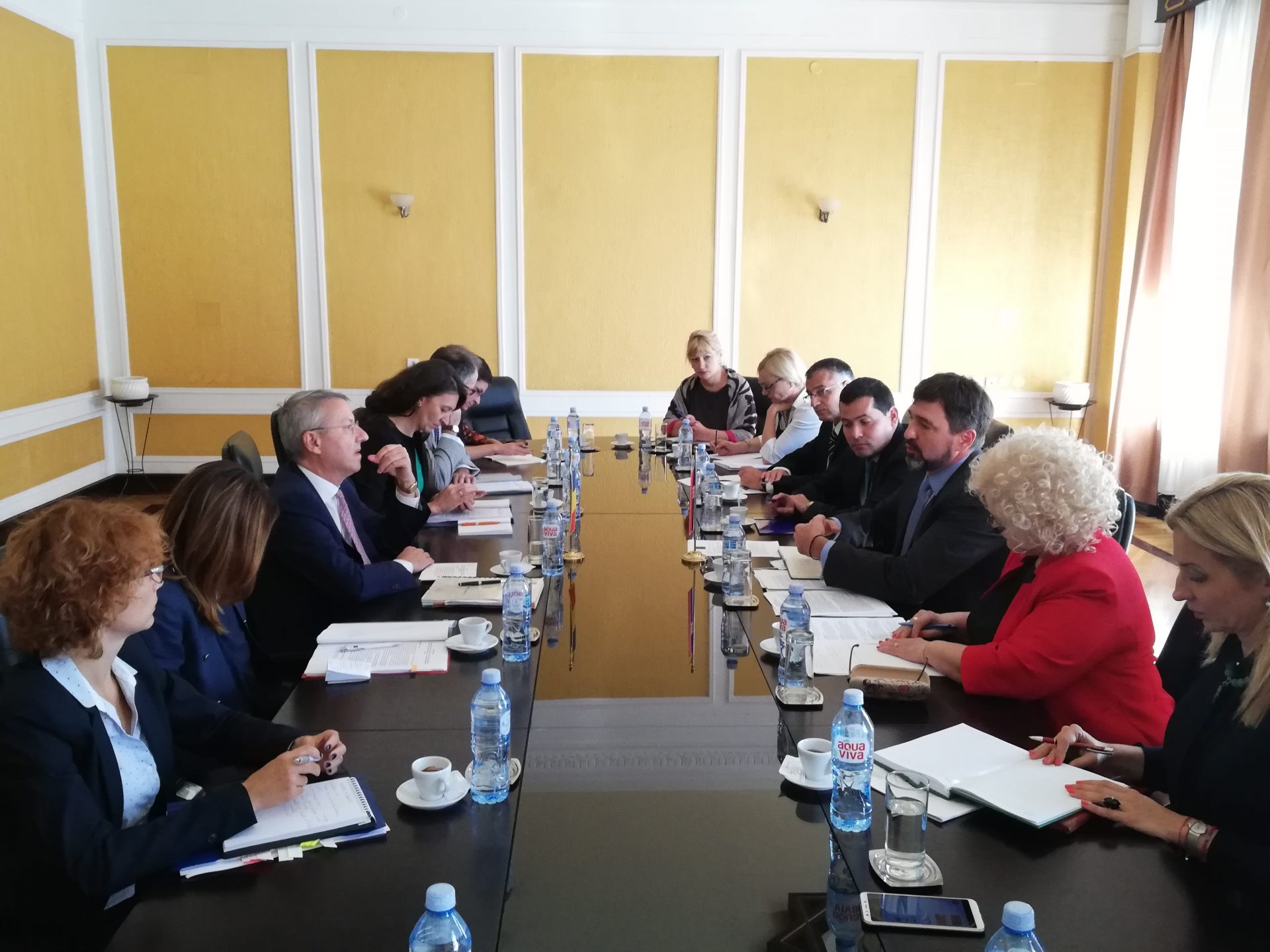
State Secretary of the Ministry of Public Administration and Local Self-Government Ivan Bošnjak and State Secretary of the Ministry of Foreign Affairs of Romania George Ciamba, both co-chairs of the Romania-Serbia Intergovernmental Joint Commission for National Minorities, talked in Belgrade about cooperation on addressing the issues relevant for the position of the Romanian and Serbian national minorities in these two countries in the coming period. The focus of their talks was on the issue of education and information, while Mr. Ciamba said he was pleased because Serbian President Aleksandar Vučić publicly promised to improve provision of information in the language of the Romanian national minority in Serbia and invest in the increase of the number of teaching staff for classes in the Romanian language. Mr. Ciamba said a pragmatic approach was necessary in the work of the Intergovernmental Joint Commission for National Minorities, while representatives of Serbia and Romania agreed that the next meeting of co-secretaries of the Commission should be held on 30-31 October in Bucharest. Mr. Ciamba concluded that he expected the Commission to work constructively and play a positive role in Serbia’s European integration process, as well as support from Romania during Romania’s forthcoming presidency of the European Union. The meeting in Bucharest should identify conclusions implemented so far and set new draft recommendations to improve positions of both minority communities in both countries. State Secretary Bošnjak notified Mr. Ciamba about recent meetings with representatives of the Romanian national minority in Central and East Serbia, which were attended by the Consul General of Romania, as well as about new legal arrangements regarding minority issues, the preparation of which also included a representative of the Romanian national council. Mr. Bošnjak also said that all actions in connection with elections for national councils were performed as planned, as well as that 18,970 citizens eligible to vote for the Romanian national council were currently registered with the Special Electoral Roll and that one electoral list had been submitted.



